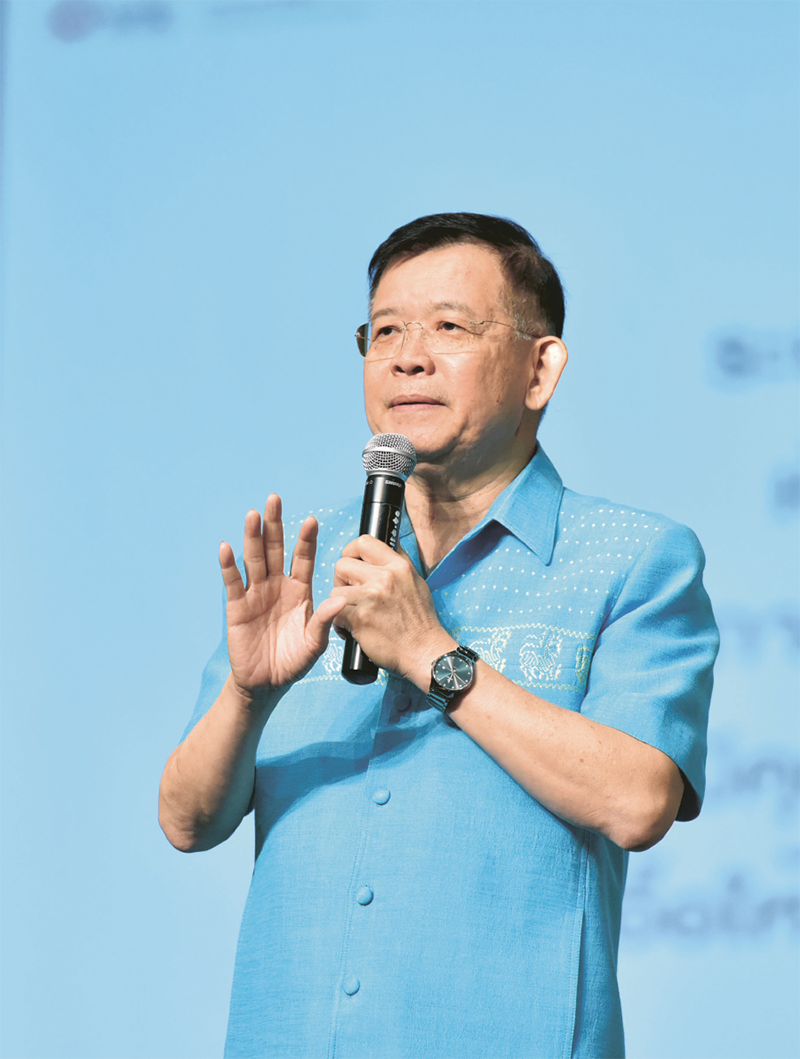| SUSTAINABILITY |
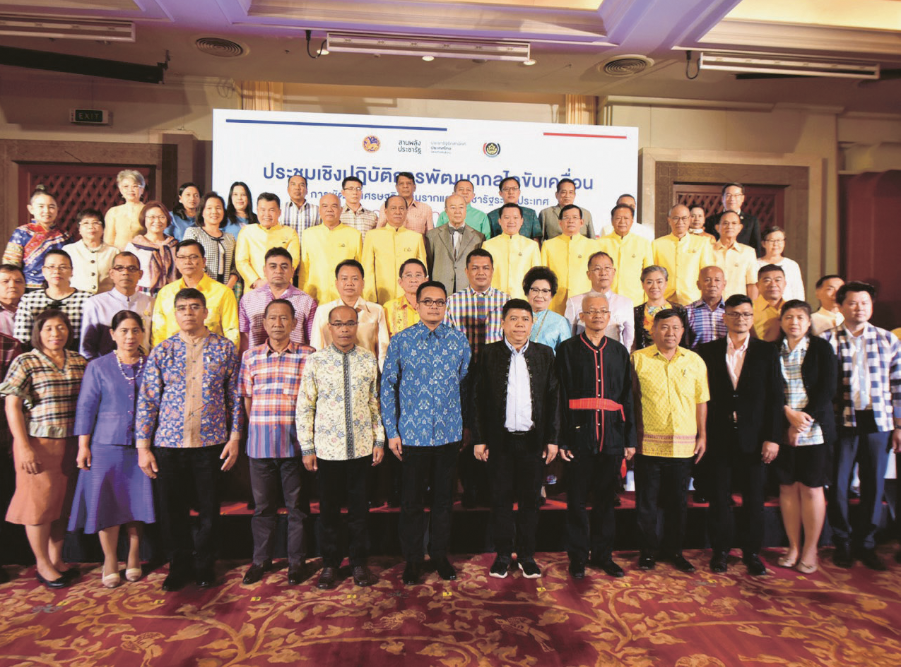
The Working Group on Local Economic and Social Enterprise
Development has introduced His Majesty King Bhumibol Adulyadej
The Great’s (Rama IX) Sufficiency Economy and philosophy on
the development of “Understanding, Accessing, Developing,” in
accordance with the royal initiative to truly realize the needs of
the local people, help create opportunities for them to generate
income, and improve their quality of life and the local economy.
The ultimate goal is to drive and develop the country towards
stability, prosperity, and sustainability.
The working group also adheres to the first Royal Command of
His Majesty King Maha Vajiralongkorn Phra Vajiraklaochaoyuhua
(Rama X), “I shall continue, preserve, and build upon the royal
legacy and shall reign with righteousness for the benefit of the
people forever,” as a framework for creating concepts and
principles of operation focused on three areas, namely agriculture,
value-added products, and community-based tourism. The
working group has jointly established a company in the form of
a social enterprise under the name Pracharath Rak Samakkee
(Social Enterprise) Co., Ltd. in 76 provinces nationwide. It has
also established a company called Pracharath Rak Samakkee
Project Social Enterprise (Thailand) Co., Ltd. to team up with
20 private companies for them to be a central unit for successful
linkage between different sectors.
Through this integration, the company has achieved results and
generated revenue for communities comprising more than 60,000
households, with a total revenue of 543 million baht. The project
has also led community products (OTOP) sales to grow from
109,000 million baht in 2015 to 125,208 million baht in 2017
to 154,000 million baht and 190,000 million baht in 2018 and 2019
at a rate of 15 percent, 23 percent and 24 percent respectively.
The rate is considered high when compared to the country’s gross
domestic product which grows at three-to-four percent per year.
This success has driven the government to create the Social
Enterprise Promotion Act of 2019.
This collaboration to move forward in the form of social enterprise
has allowed the government to see the importance of this type
of business as a forum for cooperation that will lead to sustainability
in accordance with all 17 United Nations Sustainability Goals (SDGs).
Therefore it enacted the Social Enterprise Act 2019, which was
announced in the Royal Thai Government Gazette on February
27, 2019. This Act is the first law certifying the status of a
juristic person to be a social enterprise in this region.
It can be
seen that the joint operation of San Palang Pracharath publicprivate
partnership initiative has great potential to change and
reform the country. It is considered the main driving force of the
Thai economy on the local level to enable communities to run
businesses based on sustainable practices.


The project has also led community products (OTOP) sales to grow
15% |
23% |
24% |

| Know-how 1. Creating Professions 2. Giving Knowledge to Youth |
|
| Environment 1. Environmental Conservation including Forest, Soil, Water, and Ocean 2. Creating Discipline in Waste Management 3. Effluent Management Campaign |
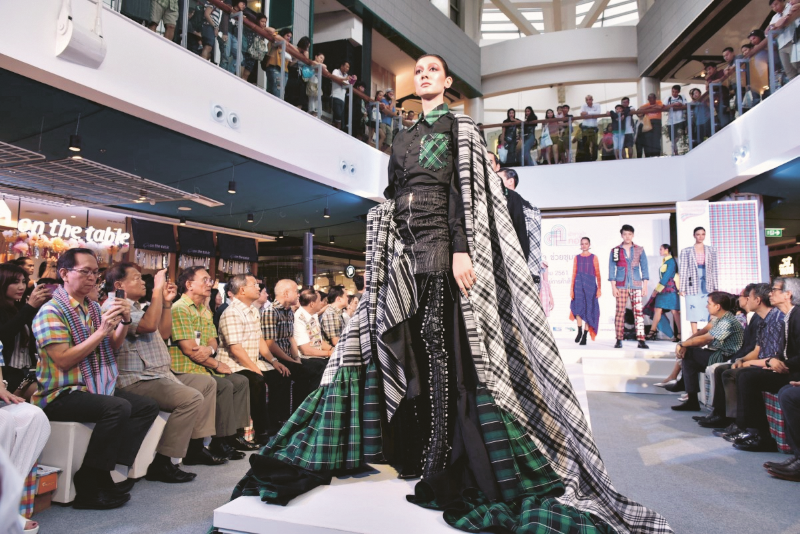
This project commenced its activities on August 12, 2016. The project
aims to raise awareness about the diversity and usability of Pakaoma,
a local fabric of Thailand with a long history. By developing their
quality and improving production techniques, the project also aims
to make the processing of hand-made Pakaoma to become more
diverse and meet the needs of consumers. As a result, the value
of these traditional products that have been produced in the
Thai countryside for a long time is increased and local communities
are able to gain a more sustainable income.
In addition, the project is focused on finding Pakaoma that reflect
the distinctive identities of various communities around the country,
as well as providing opportunities for students and the general public
to have a creative platform for expression through a design contest
of hand-woven Pakaoma in various categories. In the past year,
the project has initiated a cooperation with the Thai Pakaoma
community to create innovations for Thai Pakaoma by producing
garlands of Pakaoma and bouquets of Pakaoma. The project also
sponsored the winners of the Pakaoma design contest “Nava-atalak” (innovative identity) to travel to observe activities at Bunka Fashion
College, a world class design and fashion institute, and IFF Magic,
a fashion event in Japan.
Furthermore, the project also led to the organization of the Pakaoma
Design and Development Contest for the third consecutive year
under the concept of “Pakaoma, the Precious Identity of ASEAN
METROPOLIS” with 282 individual design submissions. The contest
was divided into four categories, namely fashion design, jewelry
design, home textile design and fabric design.
Over the past three years, the Thai Handicraft Pakaoma Project has
increased the income for 15 Pakaoma-producing communities
participating in the project threefold, with a total income of over
51 million baht.
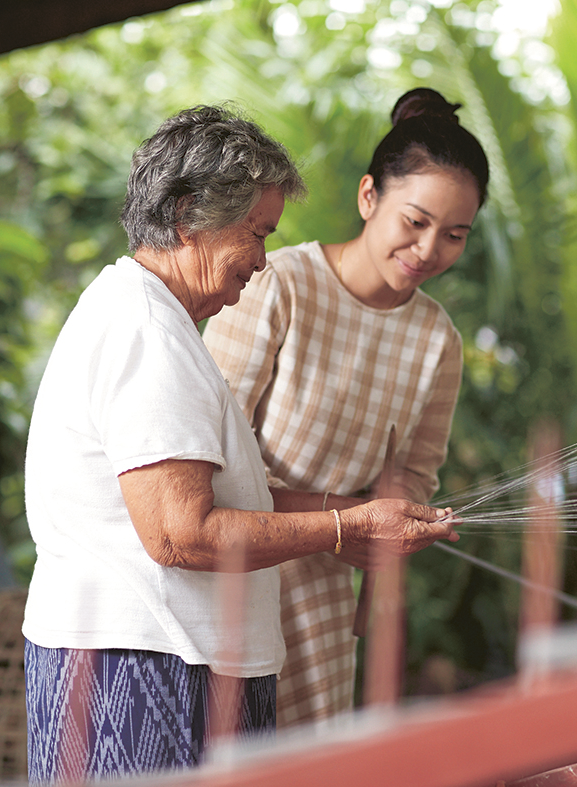
“Pakaoma has always been in my life because in our house my grandma is the one who weaves
them and my mother is the one who transforms them. She used to use natural colors but later
changed to chemical colors instead. Until one day, we all came together and thought that we have
to revive our sense of community; we have to use our local wisdom to create a unique identity.
We then started to use brown-orange from the soil gathered in our community, green from tree
leaves, and gray from the combination of three beautiful natural colors. All of these colors are
long-lasting and come from our Ban Sa-ngor community. We then used marketing to help with
our products.
It was a difficult task. We have to always think about how to make it sustainable
and how to provide the community with income and have a better quality of life. Therefore, we
must not stop to keep improving.”

“We are pleased and happy that Pracharath Rak Samakkee Amnat Charoen came to help develop our group in many aspects, including in regards to the design of weaving patterns to meet the needs of the market, assistance with the procurement of production equipment and the calculations of costs and wages in production, and also marketing. Therefore, all 42 members in the group now have more income due to the continuous orders our group received.”

“Yaam,” a type of colorful shoulder bag, has been with the Thai
people for a long time. It is a reflection of their ethnic identity and
the way of life of the community. So that the Thai-style shoulder
bag will not be forgotten, especially among the new generation,
ThaiBev has supported the “Sapai Sainaew Project” since April
2018. The project focuses on improving their design and production
so that they meet the needs of consumers and increase revenue
for the community. The project receives cooperation from partners
such as the Textile Industry Development Institute which helps
develop weaving techniques, colors, and patterns, and offers
volunteer designers to help create beautiful and interesting products.
Furthermore, ThaiBev works with Pracharath Rak Samakkee Social
Enterprise (Thailand) Co., Ltd. to help promote marketing and sales
support at various events, including sales via online channels such
as Facebook and Instagram under the account name Sapai Sainaew.
In addition to the team’s trips to the area to collect in-depth
information and help the community develop their products, they
also take the community products to sell at various local events
such as Baanlaesuan Fair and OTOP Fair, and also to overseas
markets. The products have been well received by customers, and
as a result, the villagers’ income has increased.

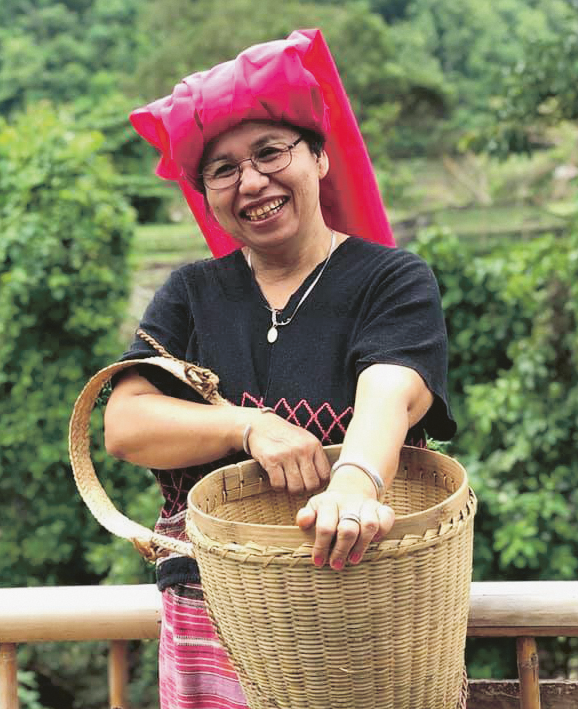
Somsri is a Pagayor Karen housewife living in Mae Chaem.
She did not have a chance to go to school and cannot speak
Thai clearly. Her husband passed away from illness. With
debts needing to be paid, Somsri chose to weave Yaam
to make a living. She taught herself to be very skillful.
Somsri formed a group and gathered female members
in the village to join. At present, Pracharath Rak Samakkee
has helped her group to sell over 100 bags. In total, there
are a total of 20 members in the group.
“At first, farming on the mountain top was a happy life.
Then my husband got cancer and died. I had 2 children
to raise and a debt of 600,000 baht. I felt very
discouraged. I wondered if I could go on any longer.
Until one day, I gathered up my strength and decided to
continue to fight.”
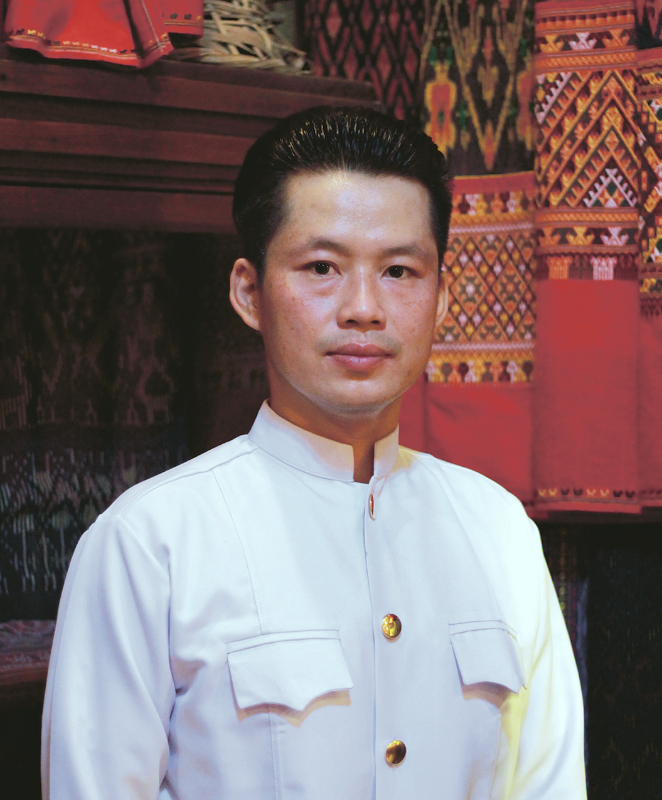
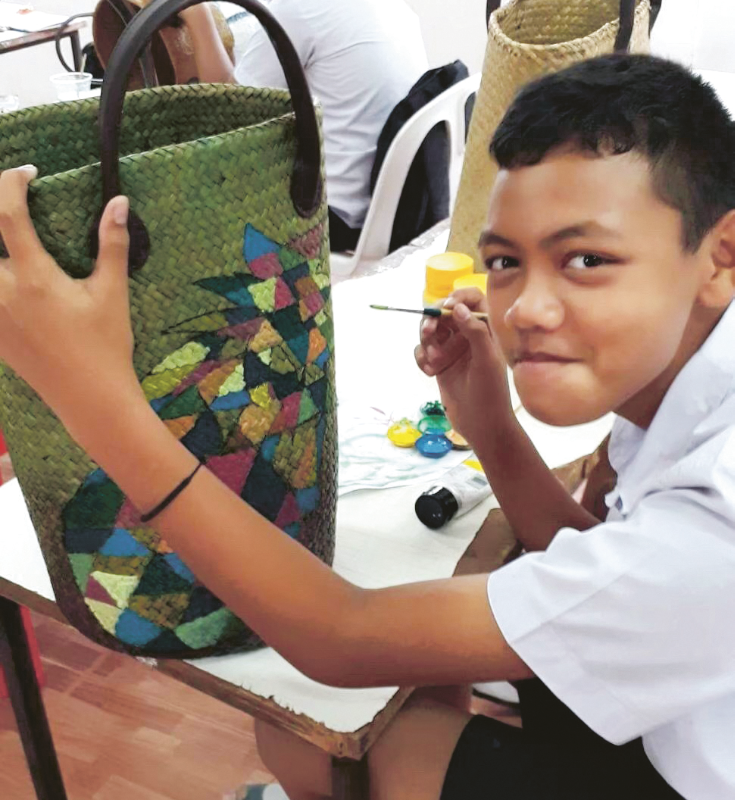
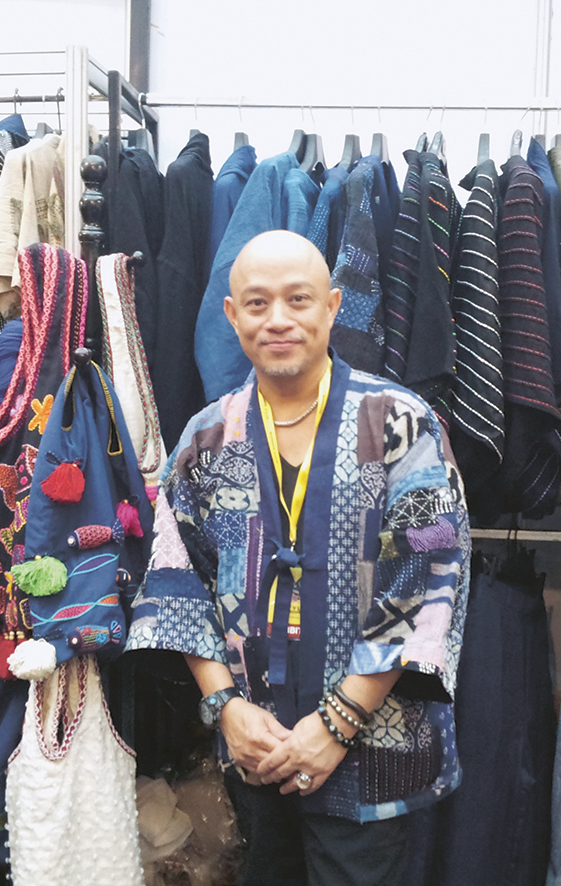
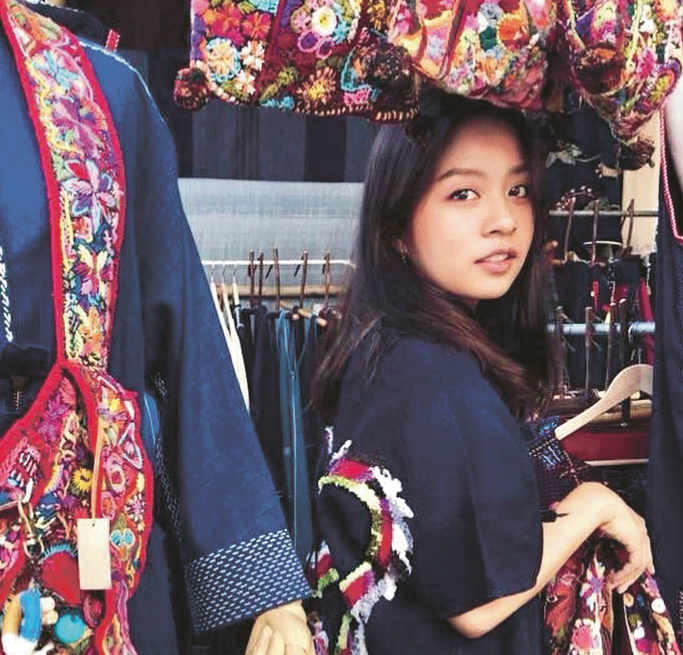
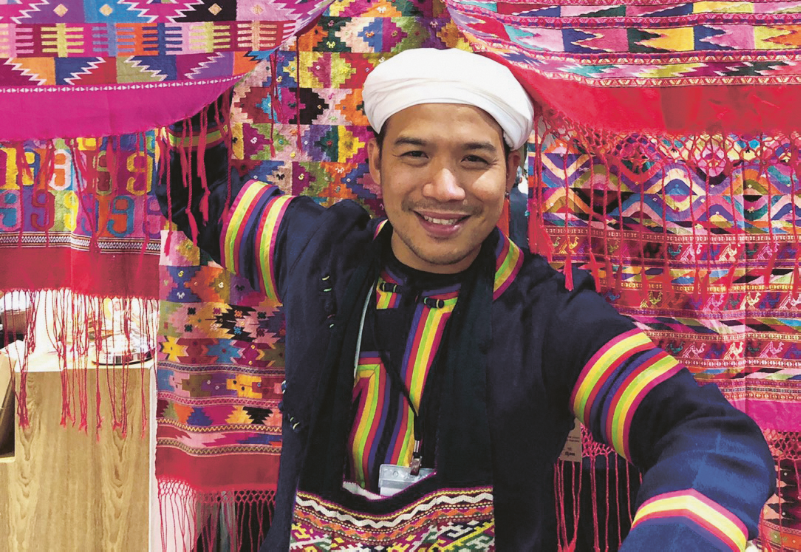
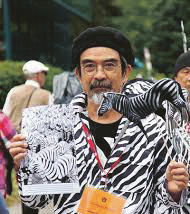

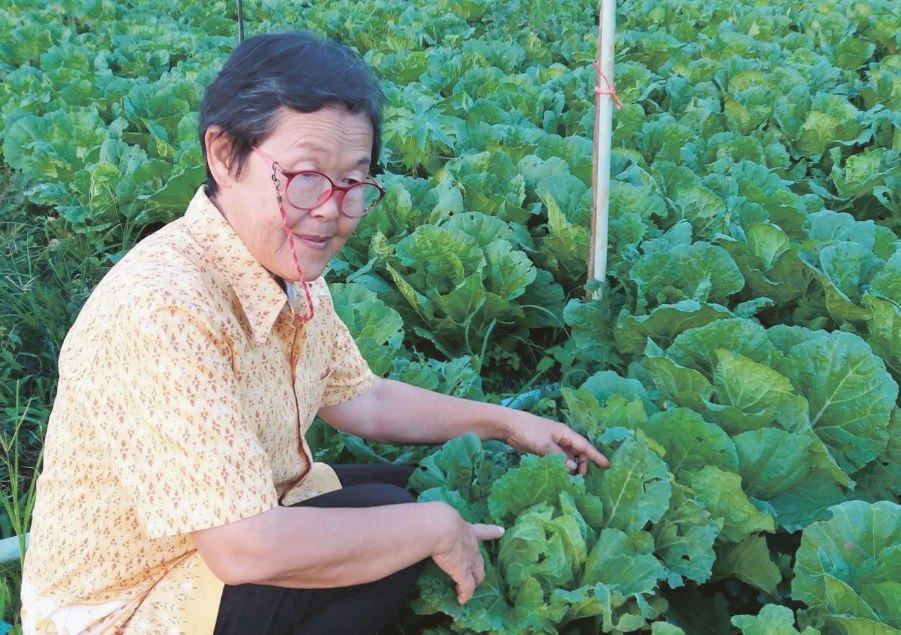
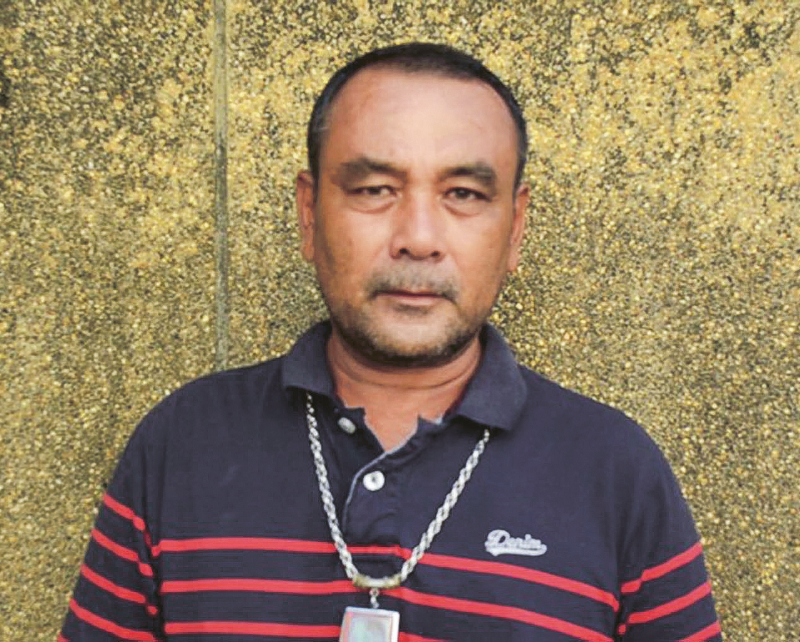
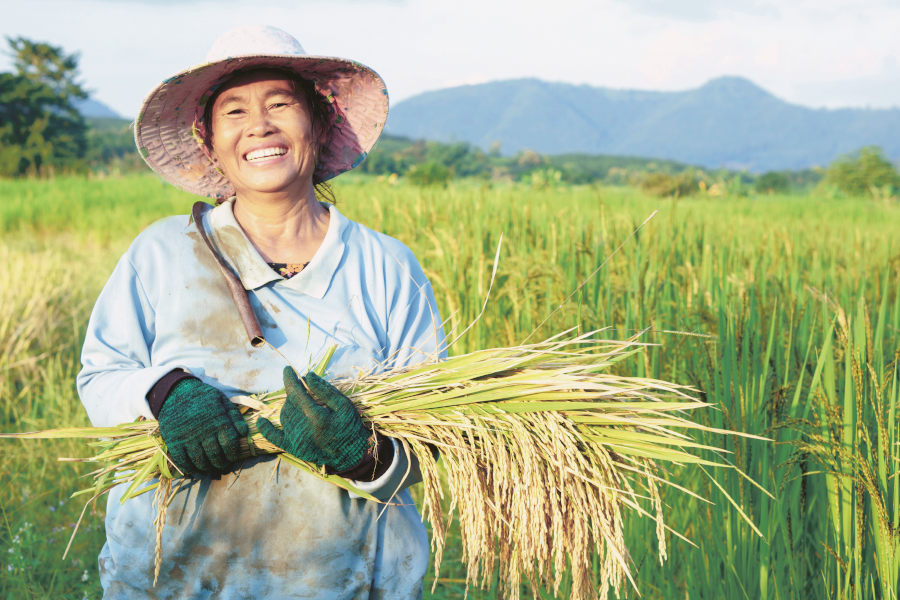
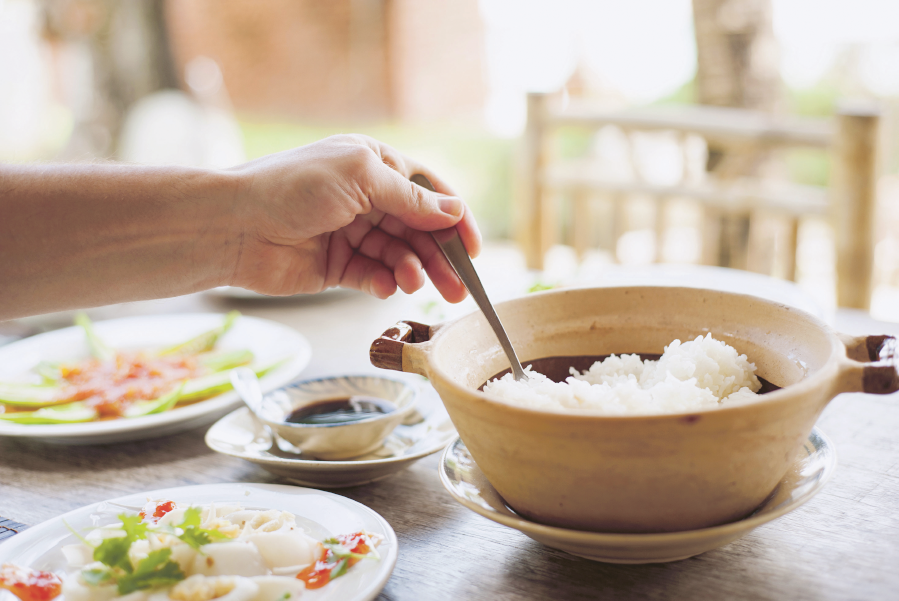
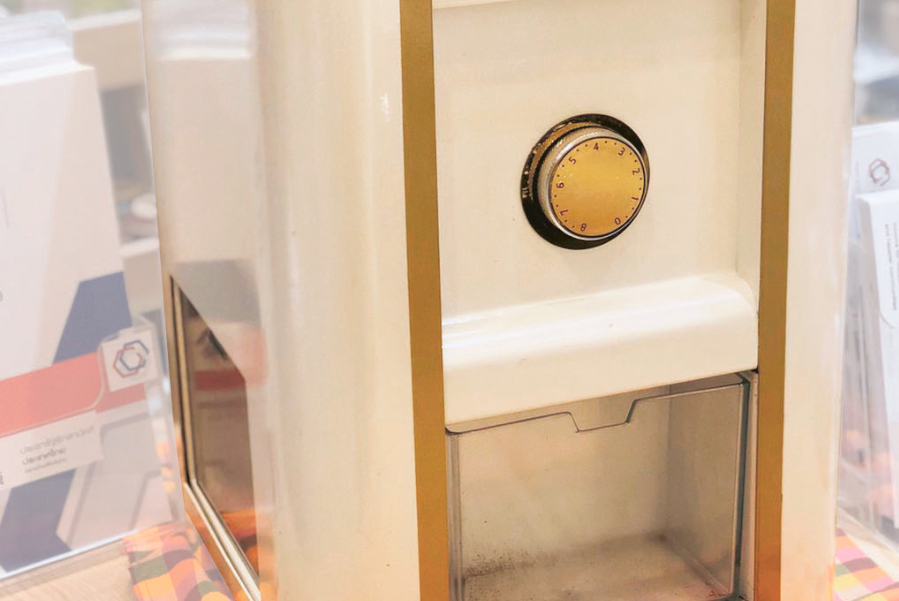
Pracharath Rak Samakkee Social Enterprise (Thailand) Co., Ltd.
jointly developed a compact rice miller suitable for household rice
milling. It is able to produce a sufficient amount of rice for household
needs and thus maximize the benefits households receive from
the rice they grow. The milling process takes no more than five
minutes to complete.
One of the important goals of the development of this household
rice milling innovation is to create a new supply chain based on a
new marketing channel for farmers, one that allows them to sell
native rice varieties directly to consumers at a higher price than
through traditional sales. The innovation also helps to encourage
farmers to develop their production skills, whether it is through
rice drying, selection, packaging or transportation, in order to ensure
quality before delivering directly to consumers. The technology
also creates more direct income for farmers.
Currently, more than 100 “Ready-to-Mill” household rice
millers have been ordered.

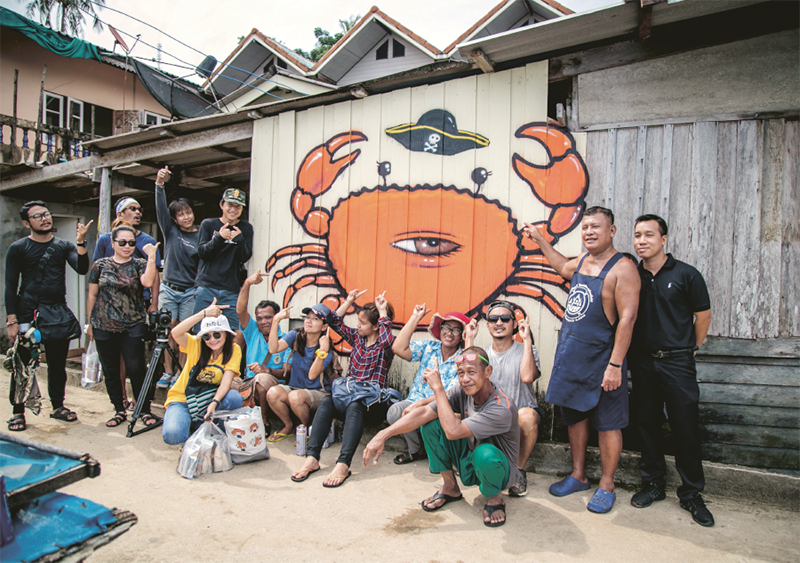
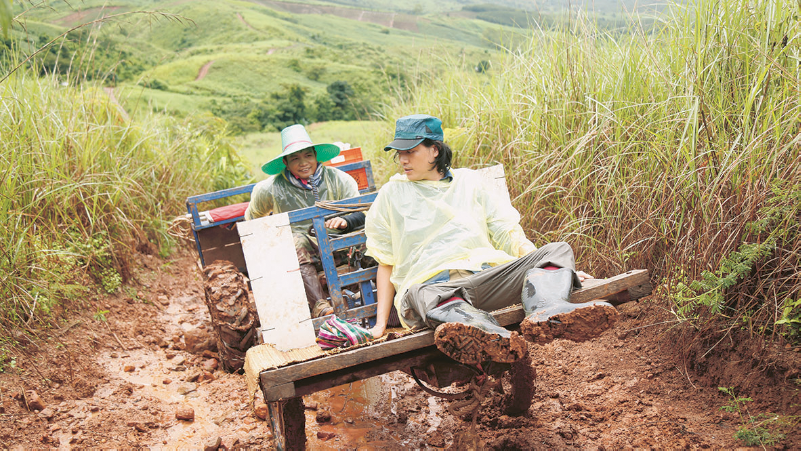

ThaiBev supports the budget for producing “Cheunjai
Thailand,” a creative travel documentary TV program. The
goal is to promote community-based tourism and community
products nationwide under the operation of the Pracharath
Rak Samakkee network. The program has been continuously
broadcasting and has featured 144 episodes until now.
Since its first broadcast on July 3, 2016, the program
has received positive audience feedback and helped the
general public to learn about new tourist attractions
operated by communities.
The program has also helped
bring the communities that have been featured to various
fairs and events, enabling them to generate income of
over 30 million baht.
